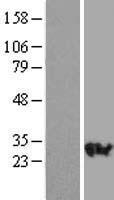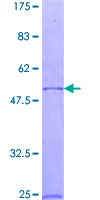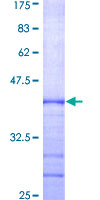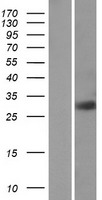order histories, retained contact details for faster checkout, review submissions, and special promotions.
Forgot password?
order histories, retained contact details for faster checkout, review submissions, and special promotions.
Locations
Orders Processing,
Shipping & Receiving,
Warehouse
2 Shaker Rd Suites
B001/B101
Shirley, MA 01464
Production Lab
Floor 6, Suite 620
20700 44th Avenue W
Lynnwood, WA 98036
Telephone Numbers
Tel: +1 (206) 374-1102
Fax: +1 (206) 577-4565
Contact Us
Additional Contact Details
order histories, retained contact details for faster checkout, review submissions, and special promotions.
Forgot password?
order histories, retained contact details for faster checkout, review submissions, and special promotions.
RAB23
RAB23, member RAS oncogene family
The small GTPases Rab are key regulators of intracellular membrane trafficking, from the formation of transport vesicles to their fusion with membranes. Rabs cycle between an inactive GDP-bound form and an active GTP-bound form that is able to recruit to membranes different set of downstream effectors directly responsible for vesicle formation, movement, tethering and fusion. Together with SUFU, prevents nuclear import of GLI1, and thereby inhibits GLI1 transcription factor activity. Regulates GLI1 in differentiating chondrocytes. Likewise, regulates GLI3 proteolytic processing and modulates GLI2 and GLI3 transcription factor activity. Plays a role in autophagic vacuole assembly, and mediates defense against pathogens, such as S.aureus, by promoting their capture by autophagosomes that then merge with lysosomes.
| Gene Name: | RAB23, member RAS oncogene family |
| Family/Subfamily: | Ras GTPase superfamily IPR001806 , RAS oncogene |
| Synonyms: | RAB23, Ras-related protein Rab-23, HSPC137 |
| Target Sequences: | NM_016277 NP_057361.3 Q9ULC3 |








If you do not find the reagent or information you require, please contact Customer.Support@LSBio.com to inquire about additional products in development.










